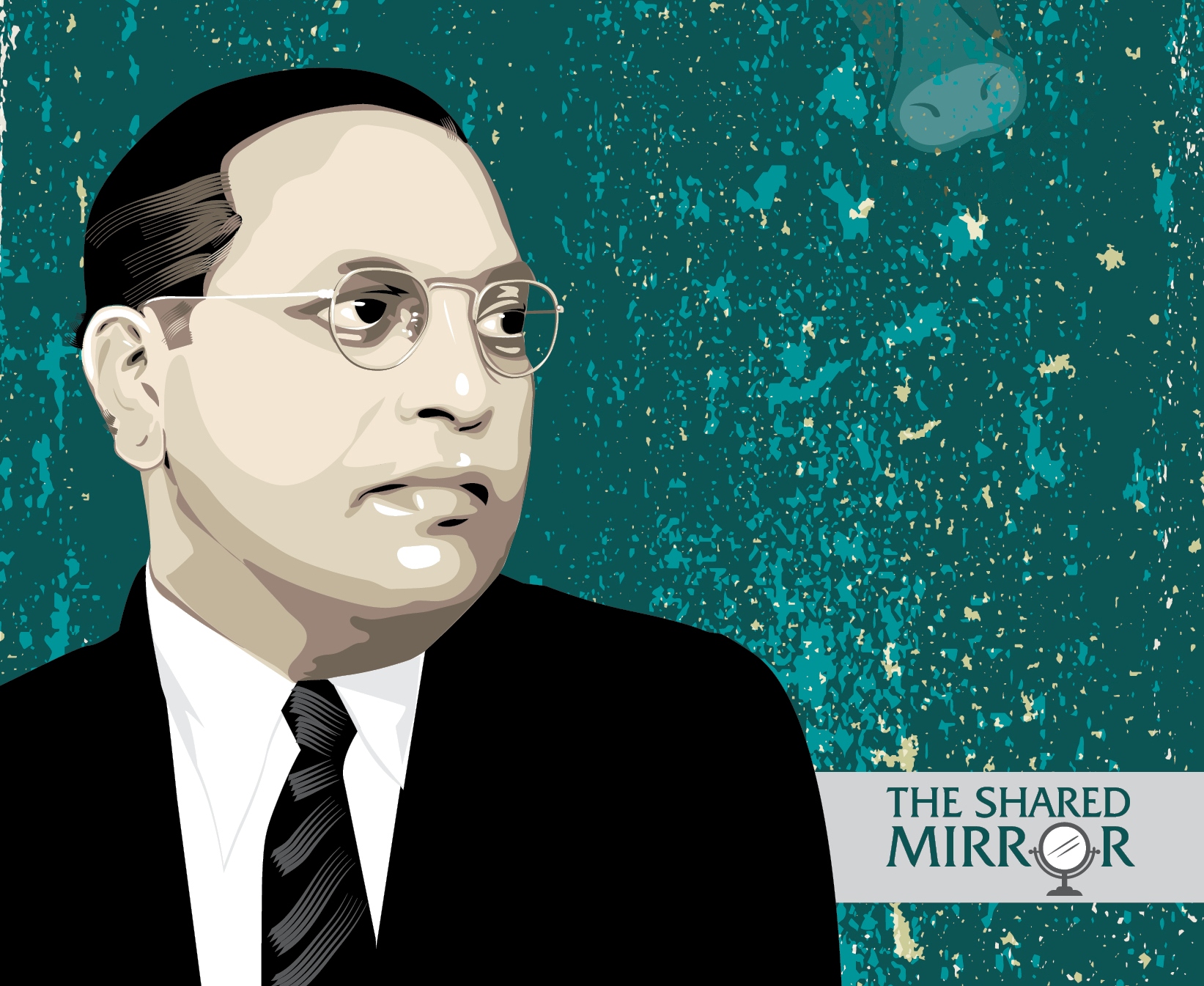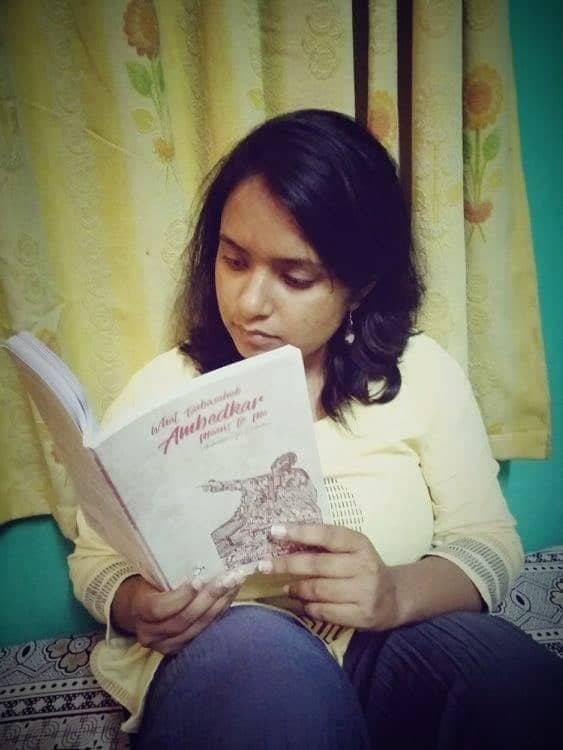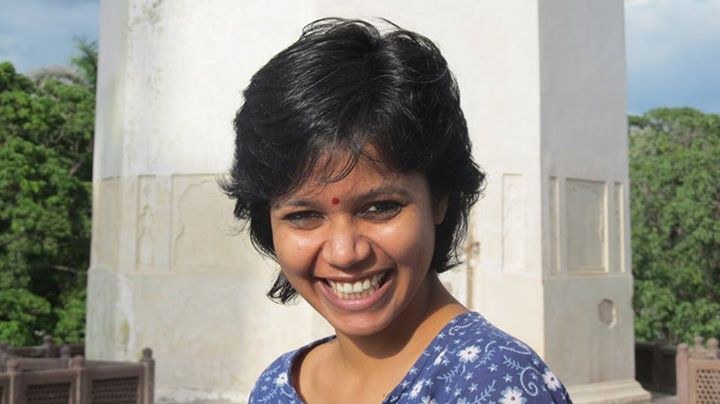Celebrating Babasaheb’s life and achievements needs no particular occasion, he has emerged as a consciousness, a moral anchor for the masses. A musical tradition of rendering his life events from birth onwards, winding through Mahad, Poona Pact, Kalaram Mandir, Round Table conferences, the constitution itself, the conversion and his death was the foremost in the archiving of Babasaheb’s memory and multiple legacies. This people’s music in turn inspired artists, painters, writers and sculptors resulting in a vibrant visual rendering by people historians–men, women, young and old, who weave a tapestry of universal values of justice, equality, liberty and fraternity.

In a society that excludes at every turn, the excluded have claimed the public sphere with the physical shape of a bust or statue of Babasaheb. Can we even begin to fathom the processes that lead to seeing this physical manifestation of Babasaheb’s consciousness at narrow street corners and busy market places? Someone/a few people took the time and generated resources to conceive of him in that spot and in million other spots across the country.
Who are they? What motivated them, how did they design it, who did they consult, how long did it take to complete, how did they feel upon its completion? How are they ensuring it continues to exist, in the absence of any kind of patronage? We would need to ask another question– why were the statues not there in those spaces before that someone or group conceived and executed it? Was the statue’s acceptance in that specific public sphere anticipated, or was conflict precipitated?
Who are these unnamed persons who seemed to have worked on a memorialization project so vast, so varied, so widely distributed that nothing comes to mind to draw as a parallel of people’s endeavor. Let us celebrate them.
It is said, ‘history existed once as event and now as text’. What happens when history is both event and text simultaneously? And is compounded by the fact that these events and the texts are both rooted in the rights of the oppressed, staking out a vision to dismantle all hegemonies? How does this history which is antagonistic to the elites—the history writers themselves—evade erasure, disappearance and appropriation?
Who are those unknown publishers, book distributors, public servants who aligned their public service spirit in disparate spaces, languages and modes to collate and disseminate Babasaheb Ambedkar’s textual legacy? Why did they work so tirelessly to ensure the oppressed, the fighters of injustice have access to the textual legacy of Babasaheb’s thoughts, make it reach far and wide, in the complete absence of pedagogy and mainstream apparatuses of dissemination? Let us honor this fantastic feat.
In a recent lecture, G Aloysius says, ‘if you want to describe Ambedkar’s life in a single word: Ambedkar was a democrat. Democrat in the fullest sense. And till the end he tried to be a democrat. You can find fault with him for many other little things, but he has been a democrat throughout. And for him democracy means dismantling caste and dismantling caste is the first step. He doesn’t stop with that. But that first step is not anywhere near coming, in fact we are going back.’
This 125th anniversary, in the act of remembering Babasaheb Ambedkar, let us commit ourselves to the principles and ideals he valued and stood for, and fully embrace our roles in annihilating caste to create the foundation of a humane society. Let us celebrate his legacy and join his followers as workers laboring for an equal world.
We celebrate Babaseheb Ambedkar by inviting women writers to send in articles on the theme of ‘What Babasaheb Ambedkar Means To Me’. Please send in your articles with a maximum word limit of 1500 words in a word document, to savarigroup@gmail.com with subject header titled Essay on ‘What Ambedkar Means to Me’.




deadline please
Thank you for your interest. We plan to keep the series running through the next few months. Please feel free to send in your contribution at the earliest.
Thank you for the invitation. But I have noticed this very late. please give me 10 days to send my paper to ‘Shared Mirror’
thank you
Prof. Challapalli Swaroopa Rani,
Acharya Nagarjuna University,
Guntur, A.P
this is new horizon for understanding ambedker philosophy..
[…] is the first essay in our ‘What Babasaheb Ambedkar Means to Me‘ […]
[…] is the second essay in our ‘What Babasaheb Ambedkar Means to Me’ […]
[…] Development Philosophy, Gender and Social Justice. ~~~ This is the third essay in our ‘What Babasaheb Ambedkar Means to Me‘ series. (function(d, s, id) { var js, fjs = d.getElementsByTagName(s)[0]; if […]
[…] This is the fourth essay in our ‘What Babasaheb Ambedkar Means to Me‘ series. (function(d, s, id) { var js, fjs = d.getElementsByTagName(s)[0]; if […]
Hi,can I write in Marathi language?
yes, Ashlesha, you are welcome to write in Marathi.
[…] This is the fifth essay in our ‘What Babasaheb Ambedkar Means to Me‘ series. […]
[…] is the sixth essay in our ‘What Babasaheb Ambedkar Means to Me‘ […]
Would love to share my views ,any deadline?
I just received this
[…] Alka Gadgil on What Babasaheb Ambedkar Means To Me: Call for Articles from Women Writers […]